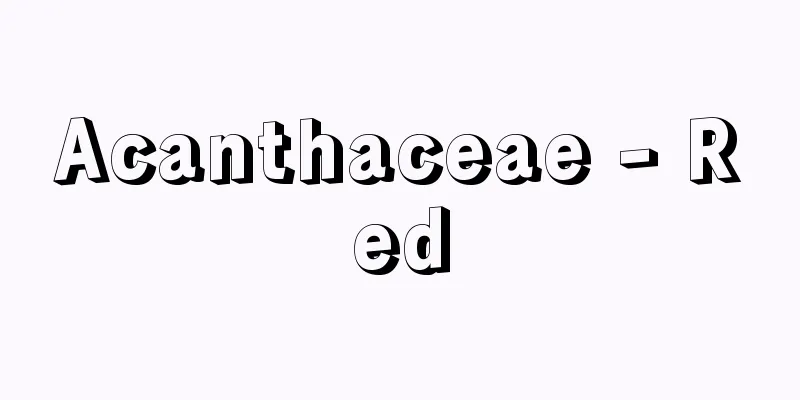Buying and Selling - Bye Bye

|
A contract is established when one party (the seller) promises to transfer property rights to the other party (the buyer) and the other party promises to pay the price for it (Civil Code Article 555 onwards). It is a paid, bilateral, consensual, non-exclusive contract. [Takahisa Awaji] EstablishedSince a sale is a consensual contract, it is formed if there is an agreement. Unless otherwise agreed, the costs required for the contract (for example, stamp duty and notarized deed preparation fees) are shared equally between the seller and the buyer (Civil Code, Article 558). In addition, when making a contract, a reservation for the sale may be made without immediately concluding a formal contract. In this case, if it is a reservation for one side of the sale (when only one side has the right to make the reservation into a formal contract), the sale will come into effect when the reservation right holder expresses their intention to complete the reservation (Civil Code, Article 556). In addition, a deposit may be exchanged when making a contract, but unless otherwise agreed, this is presumed to be a cancellation deposit (until one of the parties begins performance, the buyer can forfeit the deposit and the seller can repay double the deposit and cancel the contract) (Civil Code, Article 557). [Takahisa Awaji] efficacyWhen a sale is concluded, the seller is obligated to transfer the property rights that are the subject of the sale, and the buyer is obligated to pay the purchase price. If the seller bears fruits before delivering the subject matter to the buyer, those fruits belong to the seller (Civil Code Article 575, Paragraph 1). In exchange, the buyer does not have to pay interest on the purchase price until he receives delivery, but is obligated to pay interest from the date of delivery (Civil Code Article 575, Paragraph 2). In addition, it is important that the seller bears the warranty responsibility. There are two types of warranty responsibility for the seller. One is the responsibility for defects in the right that is the subject of the sale (liability for replacement warranty). (1) In the case of the sale of another person's right. If the seller makes another person's right the subject of the sale but is unable to acquire it, the buyer can cancel the contract and claim damages (Articles 561 and 562 of the same law). (2) In the case of shortage in quantity and partial loss. If there is a shortage of the item that was sold with a specified quantity, or if part of the item has already been lost at the time of the contract, the buyer can request a reduction in the purchase price, cancellation of the contract, and damages (Article 565 of the same law). (3) In the case that the subject of the sale has another person's right of possession (superfacility right, emphysema right, etc.). The buyer can cancel the contract and claim damages (Article 566 of the same law). (4) In the case that the real estate that is the subject of the sale has a mortgage or other right attached to it, and the buyer loses ownership as a result. The buyer can cancel the contract, request the repayment of contributions, and demand damages (Article 567 of the same law). Another of the seller's warranty responsibilities is the responsibility for any hidden defects in the object of the sale (warranty for defects), and the buyer can cancel the contract and demand damages (Articles 570 and 566 of the same law). Most of these responsibilities are subject to a one-year statute of limitations. [Takahisa Awaji] Special salesThere are various types of sales, such as actual sales (where the object and the money are exchanged immediately), test sales (where the buyer tests the object before deciding whether to buy it or not), sample sales (where a sales contract is concluded based on a sample), credit sales (where payment is postponed until a certain time (such as the end of the month)), and installment sales (where payment is made in several installments). [Takahisa Awaji] Source: Shogakukan Encyclopedia Nipponica About Encyclopedia Nipponica Information | Legend |
|
当事者の一方(売り主)が財産権を相手方(買い主)に移転することを約し、相手方がこれに代金を支払うことを約することによって成立する契約(民法555条以下)。有償・双務・諾成・不要式の契約である。 [淡路剛久] 成立売買は諾成契約であるから、合意があれば成立する。契約に要する費用(たとえば、印紙代や公正証書作成の手数料)は、特約がなければ、売り主と買い主とが平分して負担する(民法558条)。なお、契約に際して、いきなり本契約を結ばずに、売買の予約をすることがある。この場合、それが売買の一方の予約(予約を本契約にする権利を一方だけがもっている場合)であれば、予約権利者が予約を完結する意思を表示したときから売買の効力が生じる(同法556条)。また、契約に際して手付が授受されることがあるが、これは別段の合意がなければ、解約手付(当事者の一方が履行に着手するまでは、買い主は手付金を放棄して、売り主は手付金の倍額を償還して、契約を解除できる)と推定される(同法557条)。 [淡路剛久] 効力売買が成立すると、売り主は売買の目的物である財産権を移転する義務を負い、買い主は代金を支払う義務を負う。売り主が買い主にいまだ目的物を引き渡さないうちに果実を生じたときには、その果実は売り主に属する(民法575条1項)。そのかわりに、買い主は引渡しを受けないうちは代金の利息を支払う必要がなく、引渡しの日より利息を支払う義務を負う(同条2項)。 このほか、売り主が担保責任を負うことが重要である。売り主の担保責任には二つあり、一つは、売買の目的たる権利に瑕疵(かし)があることによる責任であり(追奪担保責任)、(1)他人の権利の売買の場合 売り主が他人の権利を売買の目的としたが、それを取得できなかった場合、買い主は契約を解除でき、また損害賠償をとれる(同法561条・562条)、(2)数量不足および一部滅失の場合 数量を指示して売買した物が不足な場合、および物の一部が契約の当時すでに滅失していた場合、買い主は代金の減額、契約の解除、損害賠償を請求できる(同法565条)、(3)売買の目的物に占有を内容とする他人の権利(地上権、永小作権など)がついている場合 買い主は契約を解除でき、また損害賠償をとれる(同法566条)、(4)売買の目的たる不動産に抵当権などがついていて、そのため買い主が所有権を失った場合 買い主は、契約の解除、出捐(しゅつえん)の償還、損害賠償の請求ができる(同法567条)、などである。売り主の担保責任のもう一つは、売買の目的たる物に隠れた瑕疵があった場合の責任であり(瑕疵担保責任)、買い主は契約を解除でき、また損害賠償をとれる(同法570条・566条)。なお、これらの責任の多くは1年の除斥(じょせき)期間にかかる。 [淡路剛久] 特殊の売買売買には、現実売買(目的物と代金とが即時に交換されるもの)、試験売買(買い主が目的物を試験してみて、買うかどうかを決めるもの)、見本売買(見本によって売買契約を結ぶもの)、掛売り売買(代金の支払いを一定時期〈たとえば月末〉まで延ばすもの)、割賦売買(代金の支払いを何回かに分割して行うもの)などがある。 [淡路剛久] 出典 小学館 日本大百科全書(ニッポニカ)日本大百科全書(ニッポニカ)について 情報 | 凡例 |
<<: Buying and Selling Marriage - Bai Bai Kon (English spelling) mǎi mài hūn
Recommend
Police offense - Ikeizai
This is one of the crime categories, along with fe...
Horizontal coordinates
A type of celestial coordinate system, which is a...
Kurozumi Munetada
Year of death: February 25, 1850 (March 7, 1850) Y...
Thin - Slender
A popular song from the early modern period. Among...
Brosse (English spelling) Salomon de
[Born] 1571. Verneuil Died December 9, 1626. Frenc...
Grus canadensis (English spelling) Gruscanadensis
…[Hiroshi Aramata]. … *Some of the terminology th...
Pliny the Elder - Pliny
A Roman soldier, politician, and scholar during th...
Armeria
...Statice, which is often used as cut flowers or...
Seaweed Nori - Kaisou Nori
...In the Edo period, the idea of adding preser...
Mitsuo [Hot Springs] - Mitsuo
A national health resort hot spring in Shunan City...
Bahnar
…(1) A general term for the mountain minority gro...
《Surréalisme au service de la révolution》 (English notation) Surrealismeau service de la revolution
…Breton published the Second Surrealist Manifesto...
Inula britannica
…[Hiroji Koyama]. . … *Some of the terminology th...
Musha Incident
An anti-Japanese rebellion by Taiwan's indige...
Gold Sansai
…The Song Dynasty, founded in 960, was invaded by...







![Minamioguni [town] - Minamioguni](/upload/images/67ccf3e2772c9.webp)

